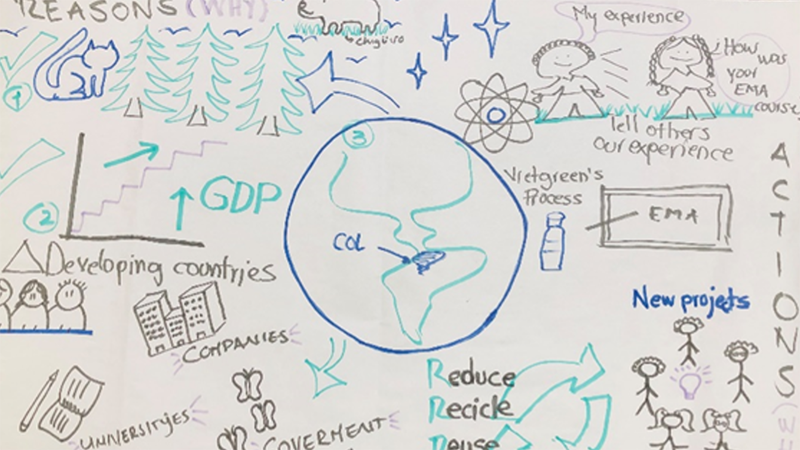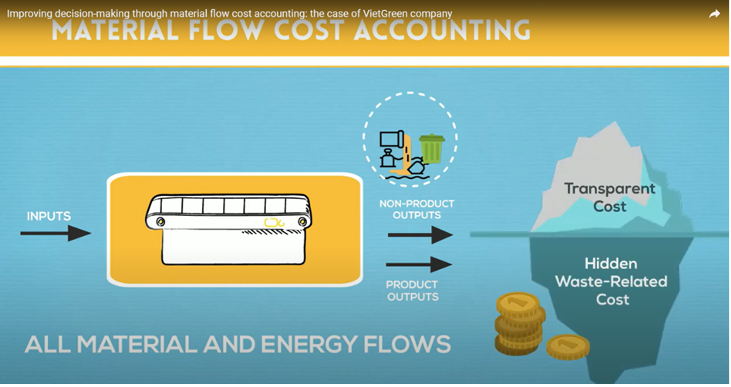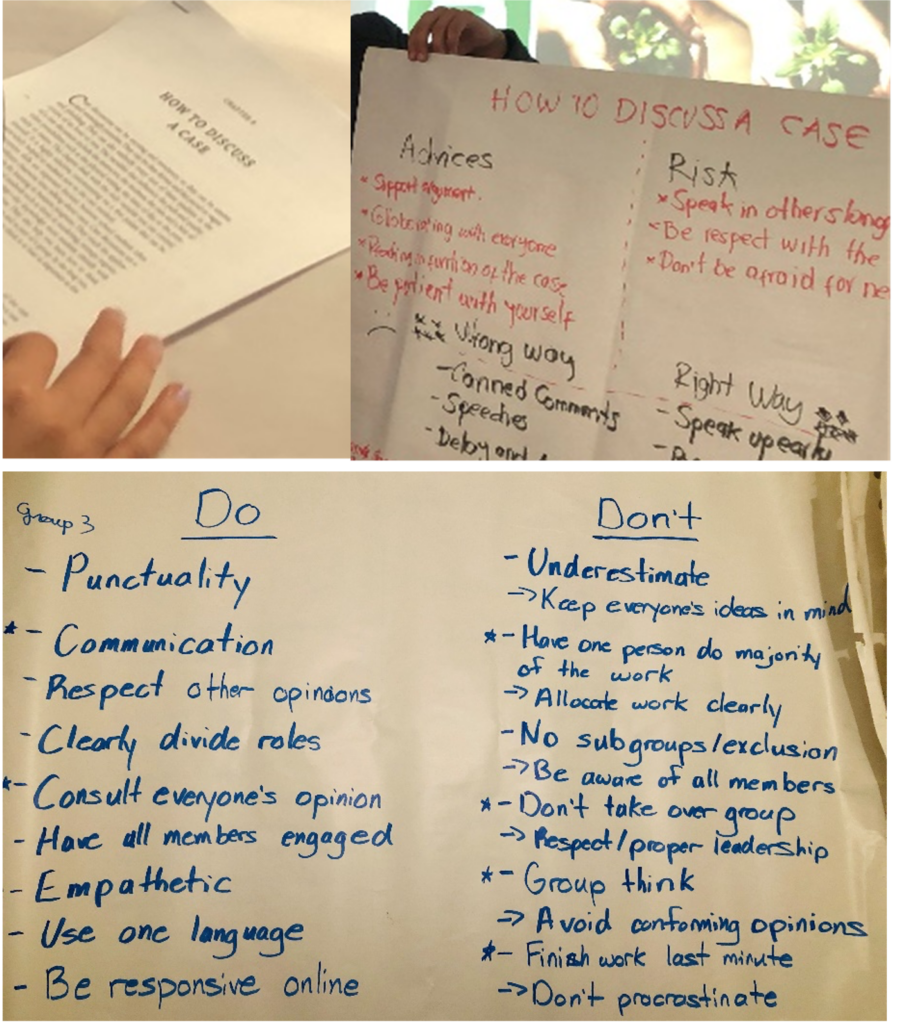Teaching sustainability accounting with case studies: a reflection on opportunities, challenges and solutions
Posted by Thuy Tran. Last updated: October 28, 2024
Thuy Thanh Tran is an Assistant Professor of Sustainability Accounting at TBS Education, Toulouse, France. She has incorporated sustainability into the accounting curriculum in Europe and South America for many years. Here, she reflects on teaching sustainability accounting through case studies, highlighting the opportunities, challenges, and potential solutions.

Sustainability is one of the foremost challenges of our time, and higher education is crucial for enhancing students’ competencies to become sustainability change agents. I believe educators can adopt pedagogical approaches that drive the necessary transformations to sustain the environment and society. This aligns with the increasing calls for higher education to encourage more critical thinking El-Azar, D., (2022), 4 trends that will shape the future of higher education, World Economic Forum, 7 February 2022 in students by adopting innovative pedagogies Cho, C.H. and Costa, E. (2024), Sustainability accounting education: challenges and outlook, International Journal of Sustainability in Higher Education, Vol. 25 No. 7, pp. 1412-1425. .
A teaching case study has three characteristics:
- one or more significant business issues,
- sufficient information to draw conclusions and
- no stated conclusions.
Teaching with cases benefits students, educators, and institutions but depends on the learning objectives, the student’s educational level, and course design.
Opportunities for teaching and learning with case studies
Students can learn with case studies to acquire knowledge in sustainability accounting and enhance various professional skills, including critical thinking, teamwork, and communication ( Tran and Herzig, 2023 Tran, T.T. and Herzig, C., (2023). Blended case-based learning in a sustainability accounting course: An analysis of student perspectives, Journal of Accounting Education, 63, p.100842 ). These skills are essential for future accountants and managers who will become change agents for creating a more sustainable world. These are examples of student reflections on critical thinking and communication skills in case-based courses on sustainability accounting.
I learned how to separate relevant and irrelevant information from a large amount of information. I also learned how to think critically when faced with difficult questions and how to justify our team’s decisions.
Postgraduate student, TBS Education, France
I have overcome my fear of public speaking. I surprised myself because of my courage to speak up. It does not always come to me easily. I am so glad it turned out this way.
Postgraduate student, University of Kassel, Germany
For educators, teaching with case studies benefits career development and publication. Due to my expertise in this innovative pedagogy, I have had opportunities to gain teaching experience with students across different regions (e.g., Asia, Europe, and South America). Additionally, it has enabled me to publish papers on accounting education and share my practical experiences with others. Sector organisations or industries may pick these up. For example, one paper ( Tran and Herzig, 2023 Tran, T.T. and Herzig, C., (2023). Blended case-based learning in a sustainability accounting course: An analysis of student perspectives, Journal of Accounting Education, 63, p.100842 ) was cited in a literature review of education and sustainability ( IFAC, 2024 Neuman. E.L., (2024). Educating Accountants for a Sustainable Future A Literature Review of Competencies, Educational Strategies, and Challenges for Sustainability Reporting and Assurance, IFAC website, 10 January 2024 ).
Teaching with case studies and other innovative pedagogies helps educational institutions attract students to enrol in courses and programs. At TBS Education, I have contributed to integrating sustainability into the accounting curriculum, where case studies promote educational transformation and excellence. Case studies, as part of the curriculum, bring the topic of sustainability alive through real-world examples.
Overcoming educator challenges
Despite the benefits of teaching with case studies, educators may encounter various personal challenges in their teaching practices. These include a lack of motivation and negative emotions (e.g., fear and anxiety), a lack of suitable cases or case-based innovations. I have some suggestions to address these challenges.
Solutions for dealing with a lack of motivation and negative emotions
Despite the growing use of case-based teaching in accounting education, many educators misuse and underutilise it. To implement effectively, educators must seek training or be willing to learn, adopting flexible roles by practising or observing experts in the field.
Depending on financial budgets or funding availability, training offered by the Case Centre is an excellent resource. Additionally, educators should stay updated with knowledge from various sources and learn from the experiences of others. As I pursue lifelong learning, teaching with cases motivates me to acquire new knowledge on effectively teaching case studies by reading articles from diverse sources. For example, I read papers from the Harvard Business Publishing Education, Case Centre, and Accounting Education Journal to keep up to date. Through research-based teaching, I incorporate up-to-date research knowledge from my field, such as material flow cost accounting ( Tran et al., 2024 Tran, T.T., Burritt, R.L., Herzig, C. and Christ, K.L. (2024). Material flow cost accounting in Vietnam: a multi-level exploration, Accounting, Auditing & Accountability Journal, Vol. ahead-of-print No. ahead-of-print ), into my teaching practices and learning materials to support students learning with case studies.
More importantly, engaging and networking with inspiring educators — whether through attending case-based lectures taught by colleagues or participating in conferences and events organised by professional associations (e.g., BAFA, EAA, AAA, CSEAR, and Accounting Cafe) — can help educators learn from others’ experiences and subsequently apply these insights into practice to enhance the quality of teaching. Sharing is key to the success of educating for sustainable development (SDG4).
Writing and promoting case studies
Although there is a lack of case studies available, educators can actively seek cases from peer-reviewed journals focusing on teaching case studies. For example, Issues in Accounting Education includes cases on sustainability reporting, capital expenditure analysis, and recycling and reuse.
When sustainability cases are unavailable or unsuitable for educational objectives, accounting educators may need to develop their own cases. This can be achieved through partnerships with corporations, sector organisations, or student collaboration, enabling the creation of impactful cases that drive business model innovations. The cases can be developed in collaboration with professors who have extensive experience in teaching and writing cases.
The more educators write and share their case studies, the more opportunities others will have to address challenges related to a lack of suitable cases.
For example, I developed a teaching case study focusing on applying Material Flow Cost Accounting in a bottled mineral water company ( Tran and Herzig, 2022 Tran, T.T., Herzig, C. (2022). Improving decision-making through material flow cost accounting: the case of VietGreen bottled mineral water company, International Food and Agribusiness Management Review, Volume 25: Issue 1, 1 January 2022. Wageningen Academic ). This case was written and based on anonymised company data. I read several valuable books to support the writing process of the case (e.g., structure and storyline), such as Teaching & Writing Cases: A Practical Guide and The Case Study Handbook: How to Read, Discuss, and Write Persuasively About Cases. My co-authors and I recently completed other case studies, which will be published in sustainability accounting-related books.
Innovations in teaching with case studies
The presence of case studies does not guarantee the successful development of professional skills in accounting courses. Effective use of cases, combined with innovative course design incorporating diverse technologies and pedagogies, is essential to creating a strategic mix that enhances student success.
Various learning materials, such as animated videos, interview-based podcasts, YouTube videos, lecture-based videos, research articles, and books, can be used and combined to teach students through case studies in face-to-face and blended environments. These materials help meet students’ diverse learning needs and support various learning activities.
For example, I produced six animated videos and five interview-based podcasts as part of an e-learning project funded by the University of Kassel, Germany. To create the animations, I used the Powtoon web-based platform. One of the videos introduced the case study used at the beginning of the course (see Figure 1). Regarding the podcasts, I use Audacity software, which helps record and edit audio.
Students provided positive feedback on the videos, describing them as inspiring and excellent ( Tran and Herzig, 2023 Tran, T.T. and Herzig, C., (2023). Blended case-based learning in a sustainability accounting course: An analysis of student perspectives, Journal of Accounting Education, 63, p.100842 ), and on the podcasts, describing them as knowledgeable and practical due to the interviews with experienced experts in industry and academia. These videos and podcasts have been used in various courses where students learn through case studies.

In addition, you might integrate a team-based learning approach into teaching with case studies. This pedagogy encourages students to become active learners, allows them to work in teams to address practical problems, and enhances the teamwork skills necessary for their future employment.
I learned how to work with others from diverse backgrounds and universities. We collaborated on a case study to solve problems and address challenges.
Postgraduate student, TBS Education, France
I enjoyed the learning activities, and teamwork required significant effort from both me and my teammates. Working on the case was challenging, but it was an excellent exercise for enhancing teamwork skills.
Undergraduate student, Externado University, Colombia
Two critical components of team-based learning are carefully formed and managed teams (students assigned to teams by the educators) and student reflections.
To enhance team diversity, I often assign team members, typically 5-7 students per team, based on their characteristics, such as study background and country. Before introducing the specific case, I organise a team-based learning activity where students read a book chapter. They then share their knowledge on how to discuss a case, what they should do, and what they should avoid when working in teams (see Figure 2).

After learning from the case study, the team members reflect on their learning and consider how to apply what they have learned in workplace settings. They discuss the importance of sustainability accounting tools, such as environmental management accounting and material flow cost accounting, and how to promote their use in practice. I encourage creativity by providing large A3-sized sheets of paper and pens in different colours to facilitate team-based reflection. Team members discuss ideas and solutions using visual aids, keywords, and written text to illustrate their opinions. Finally, they present their solutions and propose transformative actions, highlighting the roles of various actors, including government, non-profit organisations, and educational institutions (see Figure 3).

Conclusion
Teaching with cases is an effective method to help students achieve learning outcomes in both knowledge and professional skills for students toward sustainable development because this method immerses students in realistic business situations. There are a lot of benefits for educators regarding career development, life-long learning, and publication. However, using case studies does not ensure the success of courses and programs due to challenges in teaching with case studies. These challenges include a lack of motivation and negative emotions related to teaching with case studies, a lack of available or suitable cases, and a lack of case-based innovations.
I hope these reflections provide you with some ideas on how to overcome the challenges and help you teach with case studies effectively.
Part of the Pedagogy series
© AccountingCafe.org
About Thuy Thanh Tran
Thuy Thanh Tran is an Assistant Professor of Sustainability Accounting at TBS Education, Toulouse, France. She holds a PhD in Accounting from the University of Kassel, Germany. Her research interests include the diffusion and adoption of accounting innovations, sustainability reporting, and accounting education. Her work has been published in leading journals such as Accounting, Auditing & Accountability Journal, Journal of Accounting Education, and others.

She has significant teaching experience at undergraduate and postgraduate levels in different countries (Colombia, France, Germany, and Vietnam). Enacting her philosophy of student-centred teaching, she has received positive assessments from various students from diverse backgrounds. She continuously updates and innovates in her teaching strategies, for example, adopting case study and blended teaching methods.
She has actively engaged with international academic communities in various roles, including:
- Reviewer for Accounting, Auditing & Accountability Journal and Accounting Education.
- Chair of accounting education sessions at the 2024 Annual Conference of British Accounting and Finance Association Education Special Interest Group.
- Guest speaker at renowned universities (e.g., National University of Colombia).
- Keynote speaker at academic events (e.g., the European Accounting Association’s Accounting Research in Central & South America).
References, links and resources
IFAC, January, 2024. Educating Accountants for a Sustainable Future: A Literature Review of Competencies, Educational Strategies, and Challenges for Sustainability Reporting and Assurance. Available at: https://www.ifac.org/knowledge-gateway/education/publications/educating-accountants-sustainable-future (Accessed 9 September 2024)
Tran, T.T., Burritt, R.L., Herzig, C. and Christ, K.L., 2024. Material flow cost accounting in Vietnam: a multi-level exploration. Accounting, Auditing & Accountability Journal (forthcoming).
Tran, T.T. and Herzig, C., 2023. Blended case-based learning in a sustainability accounting course: An analysis of student perspectives. Journal of Accounting Education, 63, p.100842.
Tran, T.T. and Herzig, C., 2022. Improving decision-making through material flow cost accounting: the case of VietGreen bottled mineral water company. International Food and Agribusiness Management Review, 25(1), pp.37-48.



